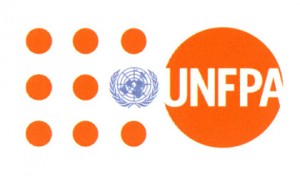 The United Nations Population Fund (UNFPA) in collaboration with Hope for Future Generations Ghana (HFFG) has trained about 100 youth at Nalerigu to equip them with knowledge on the Ebola disease to help fight the disease in the country.
The United Nations Population Fund (UNFPA) in collaboration with Hope for Future Generations Ghana (HFFG) has trained about 100 youth at Nalerigu to equip them with knowledge on the Ebola disease to help fight the disease in the country.
The training, which was in line with the United Nations system’ Ebola Preparedness Plan, was to support the government’s Ebola Preparedness Plan to continually sensitize the population about the disease to prevent its outbreak in the country.
Ms Bridget Oforiwa Asiamah, Programme Analyst, Reproductive Health and Humanitarian Assistance, UNFPA, who spoke at the training at Nalerigu in the East Mamprusi District on Tuesday, said it was important to continually sensitize the population about the disease because the country was a transit point to many international travelers and therefore, was at high risk of contracting the disease.
Ms Asiamah said even though people had heard of the disease, many still remained skeptical about it hence the need to inform them about it in practical terms to allow them to know the steps to take to prevent an outbreak and or contracting the disease.
She said the UNFPA had targeted to train 100 youth, 60 kayayei, 50 pregnant women and 30 queenmothers, each in seven regions across the country on the disease since this group of people were dynamic, influential and risked contracting the disease and would help spread the information to other members of the public.
Ms Asiamah assured that “UNFPA together with the United Nations system remains committed to our partnership with the Government of Ghana to ensure that adequate human, technical and financial resources are provided to the fight against Ebola”.
Dr Daniel Dotse, Deputy Executive Director of HFFG, a non-governmental organization, took participants through lessons on the Ebola disease including myths and misconceptions, signs and symptoms, diagnosis, prevention in schools and markets, Ebola and pregnancy, saying the disease was contagious with high cases of fatalities.
Dr Dotse urged participants to spread the information about the disease and advised all to manage their social lives well by avoiding common practices such as bodily contacts amongst others, which led to the spread of the disease.
Ms Esther Mayeem, a student of Nalerigu Nurses and Midwifery Training School, who was a participant, described the training as useful and would help to prevent the outbreak of the disease in the country.
Source: GNA























